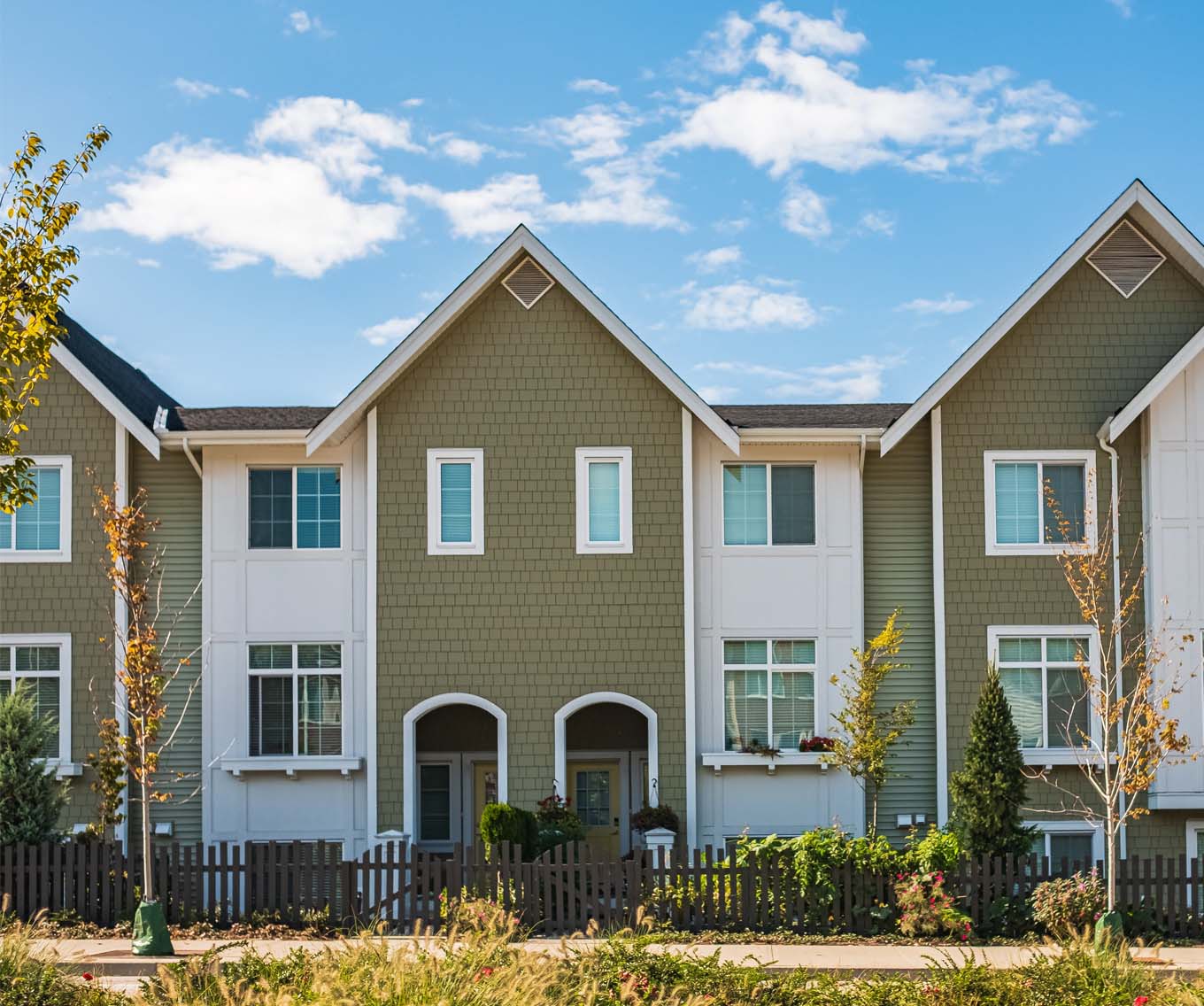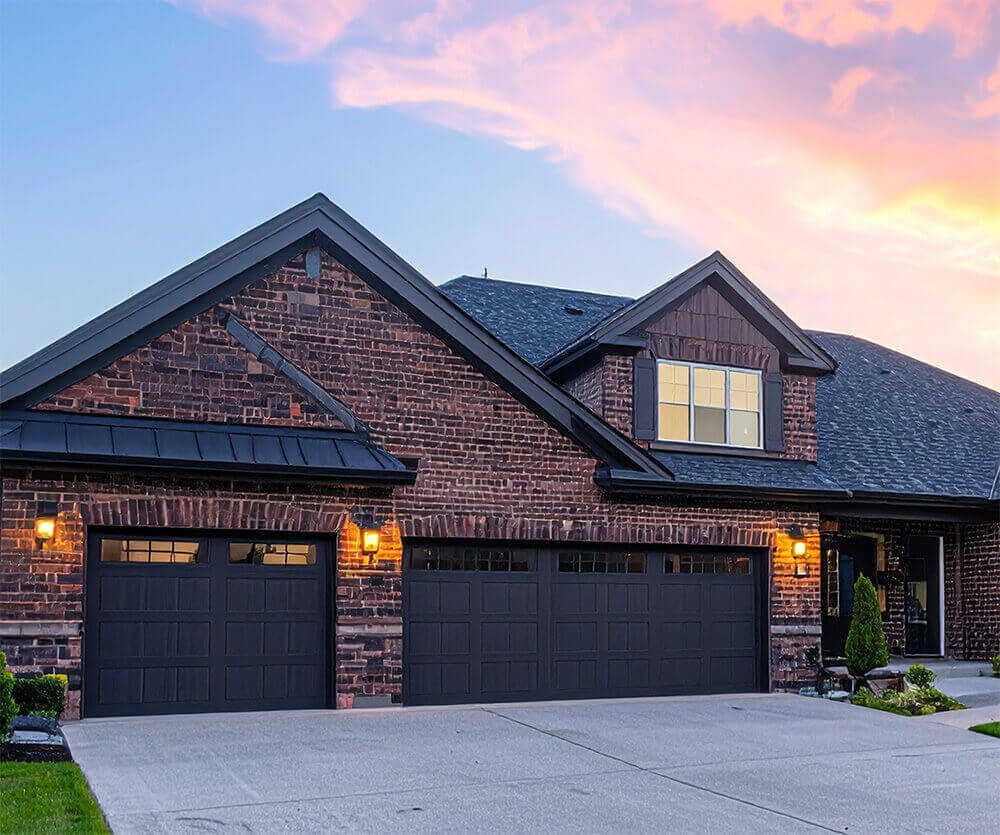Homebuying checklist
Buying a home is a major life decision. Before you start looking, use the following checklist to assess your readiness.
-
When you apply for a mortgage, your lender will conduct a thorough analysis of your finances, including your debt-to-income ratio, which measures the ratio between your monthly income and outstanding debt.
Lenders prefer borrowers to have a debt-to-income ratio of no more than 43%, which means your total debts don’t exceed 43% of your gross monthly income.
For example, if you earn $5,000 per month and your monthly bills total $1,800, you have a debt-to-income ratio of 36% ($1,800/$5,000). But if your bills total $2,500, your ratio jumps to 50%.
Before buying a home, it can be helpful to pay off your credit card debt or auto loan or refinance your student loans to minimize your monthly debts.
-
When it comes to homebuying, a good rule of thumb is to have 20% saved for a down payment.
This isn’t a hard and fast rule, as many home loan programs allow you to buy a home with as little as 3% to no money down, but without a 20% down payment, you might have to pay private mortgage insurance (PMI), which could increase your monthly mortgage payments.
Furthermore, the more money you put down, the less you’ll have to borrow. A smaller loan amount will translate into a lower monthly mortgage payment, saving you money each month.
Saving for a down payment before you start shopping for a home can increase the amount of home you can afford. Make sure you have enough savings to cover closing costs and your first mortgage payment.
-
How’s your credit score? In today’s environment, a borrower can acquire a loan even with a less than ideal credit score. For an FHA loan, a credit score could be between 500-580 depending on your available down payment.
That’s why it helps to boost your credit as much as possible before applying for a mortgage. Even an increase of 40 points or more can save you thousands of dollars over the course of your loan.
-
How will your mortgage fit into your broader budget?
When you buy a home, you’ll need enough to cover your monthly mortgage payments and property taxes, along with other costs. Homeowners insurance, for example, costs an average of $100 per month. And if you purchased your home with a down payment of less than 20%, you may be responsible for monthly PMI payments.
Added to these regular expenses are the costs of home maintenance. A broken air conditioning unit, for instance, could easily cost you over $5,000. It’s important to have an emergency fund that can cover roughly three to six months’ worth of your usual expenses to cover unforeseen costs.
-
Where do you see yourself in five years? It’s important to buy in an area that a borrower is comfortable in. Does the city have a good school district? Is there nightlife? How is the commute? Is it close to family and friends? All are important areas in deciding where to live.
Rent vs. buy
Why buy when you can rent? Renting has its advantages, especially since your landlord will be responsible for covering property maintenance and repair. Renting may also be necessary until you’re officially ready to buy a home.
Despite the flexibility of renting, buying is often the better option, at least if you plan on staying in the area for five to seven years. A house is an investment — by buying a home, you’re keeping your financial future secure.
For example, if your rent and potential mortgage are the same amount of money, your mortgage payment would help reduce mortgage principal and build up equity in your home. With a rent payment, that payment just goes to the landlord and does not allow you to build value.
How much home can you afford?
Preparing to buy a house also means setting a budget. How much home can you afford?
As a rule, you’ll want to look for a home price three to five times your household income. However, your exact budget will depend on your existing debts and how much money you can put toward a down payment.
First-time homebuyer programs
Does the answer to the question “am I ready to buy a house” change if you have poor credit or limited savings? Not necessarily.
Many programs exist to help first-time buyers purchase the home of their dreams. Here are a few options you might consider.
-
Conventional loans
Don’t discount traditional loan options just because you’re a first-time homebuyer.
A conventional loan is often preferable since it offers the lowest mortgage interest rates and other favorable loan terms. And while it’s customary to make a 20% down payment, some lenders allow first-time buyers to receive a loan with as little as 3% down.
-
USDA loans
If you don’t have money for a down payment, you might consider a loan backed by the U.S. Department of Agriculture. USDA loans allow you to purchase a qualifying home with no money down, nor will you be responsible for PMI payments.
To qualify, the homes you look at must be located in designated rural or suburban areas, and you’ll typically need a credit score of 640 or higher.
-
VA loans
Active-Duty Military Members, Veterans, and spouses of both groups are all eligible for VA loans.
Backed by the Department of Veterans Affairs, VA loans allow you to purchase a home with no money down and no PMI requirement. Individual lenders may have specific credit score requirements, but you can often get a VA loan with a score as low as 580.
-
FHA loans
Can you buy a home with poor credit? You can if you receive a loan backed by the Federal Housing Administration. FHA loans are available to anyone with a credit score of 500 or above, though you’ll need to put 10% down. But if your score is 580 or above, you’ll only need to put 3.5% down.



